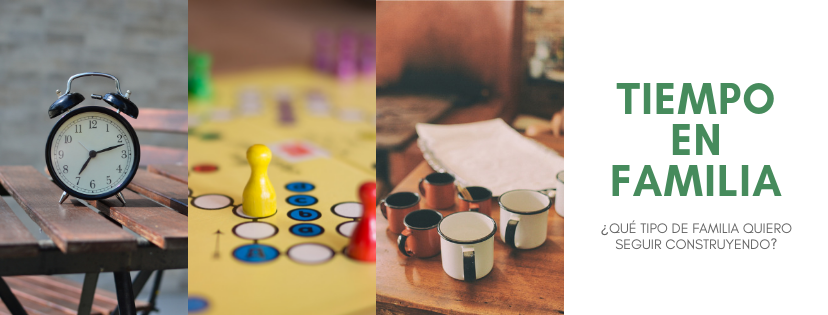
«It is in the family where the values that we want to transmit are forged, where the experience is lived for the first time.
of living in society, of being cared for and of caring for others, of belonging to a group of people.«
In line with what we have worked on at the family level within the School, we began by asking some of our students to define what family means to them.
What is family for you?
“Love, unity, jokes, spending time together, deep feelings, things in common, learning, venting, memories, fights and nice anecdotes. They are people who always help me. With all this I think: How lucky I am!”Girl, 10 years old.
“Family should be the ones to support us and guide us to make the best decisions, taking into account what we want and what is good for us, which does not have to coincide with their tastes. They should propose solutions and advice so that the other is happy and not with what one wants the other to be.”Teenager, 16 years old.
“They correct me when I do things wrong, they love me, they set limits for me, people who take care of you every day, they don't leave you and wouldn't change you for anything, they want the best for me, they support me in my ideas and in everything and they don't let me do what I want.”Fifth grade boy.
“They are the people who suffer and rejoice with you.”Fifth grade girl.
“I like it when they are all together, it is the most important thing in life.” 4 year old boy.
“They are the people you share your heart with.” 5 year old boy.
“They share the same home. A group can form a family without necessarily sharing the same blood. Although some may deny their family, they will always be family no matter the problems and disputes they may have.” 15 year old teenager.
“They are the people you have to take care of the most because you know them better than anyone else. They have to love and care for you because if not, some stranger can hurt you.” 4 year old girl.
The family is one of the global phenomena that affects each person in very different ways, as shown in these testimonies. As there is no single way to be a family, today we propose, through this medium, an opportunity for reflection.
What is my family like? What kind of family do I want to continue building?
There are many ways to define family. We talk about places, people, shared times, institutions; it can be defined as a structure, a pillar, a foundation, the origin, the root, among others.
Today we propose the concept of family as a system, a group of people who relate to each other and contribute to a specific goal. We understand that each member of that family will influence and condition the others and vice versa.
It is in the family that the values that we want to transmit are forged, where for the first time we experience living in society, being cared for and caring for others, belonging to a group of people. It is where we are educated in empathy, adaptation, tolerance and the richness of sharing. It is in this group that we discover similarities with others and build the singularities that contribute to the differentiation and uniqueness of each person.
The family functions as a refuge and a learning niche, where different forms of coexistence, routines and common practices are built that will only be understood by the people who are part of it. It is through the observation of children and adolescents towards their referents that they begin to incorporate ways of managing their emotions, communicating, enjoying, relating to others, facing conflicts and frustrations.
As the person responsible for the structuring of each member, it is essential to dedicate time and reflect on the path taken, in order to be able to re-direct it if necessary. To do this, we propose the following questions:
-
When was the first time I dreamed of having a family? What did I think it would be like?
-
What is my family like today? What characteristics does it have?
-
What positive habits do I think I foster within my family?
-
What are my weaknesses in this area?
-
What routines/practices do I consider positive in my family?
-
What routines/practices would I like to transform?
-
What things do I allow myself to say, do, feel, that I don't allow myself in other groups?
-
What is family to me?
Things to consider:
-
It is advisable to spend personal time with each member to strengthen binary ties.
-
Shared activities are great strengths of communication and bonding.
-
Some activities:
-
Box games: promote communication and fun.
-
Sport: finding a common interest. Discipline, release of energy, shared enjoyment.
-
Outdoor activities (walking, going to the supermarket or fair, having a picnic, cultural outings).
-
Cooking together: apart from being an opportunity to learn about regulation, waiting times, planning, organization and hygiene, among other things, it strengthens bonds through joint construction.
-
Share household chores: propose a family cleaning day. Each member should have a defined role. Then, finish with a celebration of what has been accomplished (e.g., having a snack together).
-
Propose new activities or hobbies.
-
Let each member have a designated day in which he or she will decide what activity to do that day.
-
We recommend:
Ps. Maria Noel Gonzalez